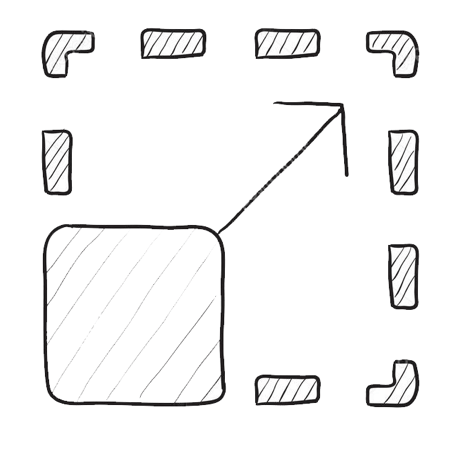Get Repeatable and Consistent Results In Your Practice!

“Even if you’re flippin’ burgers at McDonald’s, if you are excellent, everybody wants to be in your line.” – Oprah Winfrey
What do we really have to learn about building a high-performance practice from McDonald’s? They don’t exactly make the best burger in the world. Some may even argue they don’t even make a good hamburger. But as Oprah suggests, “… if you are excellent, everybody wants to be in your line.”
I hope it’s obvious that we’re not about to discuss making burgers or delivering cheap and efficient service. If you have ever read about the McDonald brothers or watched a documentary about their story (there is a really interesting movie called ‘The Founder’ which tells a different part of the McDonald’s story), you know that the brothers were very good at logically and sequentially organizing steps into a process which could be duplicated with predictable results.
The system they built could deliver the same quality product every time AND they could train anyone to do it. Look at how well it has worked! I have been hard-pressed to find any other example of a multi-national, multi-billion-dollar enterprise that could be run by teenagers.
But we are not teenagers and we are not delivering the same cheeseburger a thousand times per day. We are doctors. What could we possibly have in common with a McDonald’s franchise? Nothing, really…on the surface.
What did a hamburger shack like McDonald’s in the 1930’s have in common with an automobile manufacturer like Ford? Nothing, until Richard and Maurice McDonald implemented an assembly-line method for selling hamburgers where the quality control measures were as tight as the Ford Model 74 of the time.
Build a system that runs your business. Then just run the system.
Your practice is not a system if it does not achieve:
- Replication
- Scale
Replication
A system is something you can replicate. Here are some simple questions you can ask to test the quality of your system:
- Can we teach a reasonable person to do the tasks and generate the same result?
- If we were to lose a key employee for a time, could we fill the position without a loss in the quality of our service?
- Do we get the same results every time we perform the tasks at hand?
- How easily can we correct a mistake?
Your system is not repeatable if you cannot teach and perform the tasks to be completed and achieve the same results consistently.
Scalable
Scale is another critical component of a well-designed system. Scale, in the context of a high-performance practice, means that:
- An additional unit of input produces a multiple of output (e.g. 8-10x).
- The output increase is predictable.

In other words, you should get back more than what you put in (time, money, fulfillment, etc.). You should also be able to forecast, with accuracy, how much you will get back when you put more in (time, money).
Now you see how much in common your practice has with an organization like McDonald’s. Who is more repeatable and scalable than McDonald’s? Nobody (well maybe Starbucks, but you get the point). Do we have something to learn and apply there? Absolutely.




